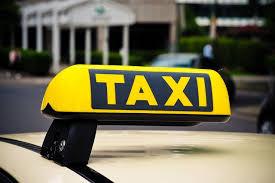
If you are arriving at Larnaca International Airport and need a reliable ride to your holiday destination, consider booking a taxi from larnaca airport to ayia napa or another city on the island. Taxis provide door-to-door convenience, fixed and metered fare options, and the ability to travel directly to hotels, villas or private addresses without the stops and schedules associated with buses. This guide explains what to expect, how to book, approximate costs, travel times, and practical tips to make your transfer comfortable and stress-free.
Why choose a taxi? The main advantages are speed and flexibility. Taxi drivers are familiar with local roads and can often find the quickest route to your destination, taking into account traffic, roadworks and time of day. If you travel with luggage, infants or a small group, a taxi saves the effort of multiple bus transfers. Taxis also operate 24/7 from the airport, so they are convenient for late-night or early-morning arrivals when public transport is limited.
Typical routes and travel times: Larnaca is centrally located on the southeast coast of Cyprus, making it convenient for trips to many resorts. Approximate travel times by taxi under normal traffic conditions are: Larnaca city centre — 15–20 minutes; Nicosia (capital) — 40–45 minutes; Limassol — 50–60 minutes; Ayia Napa — 30–40 minutes; Protaras — 35–45 minutes; Paphos — 75–90 minutes. Times vary by traffic and exact drop-off location, but these estimates help plan your arrival and onward connections.
Estimated taxi fares: Cyprus taxis may use meters or offer fixed transfer rates from the airport. As a rule of thumb, expect prices in euros; card payments are accepted by many operators, though some drivers may prefer cash. Approximate fares: Larnaca city — €12–20; Nicosia — €40–55; Limassol — €45–65; Ayia Napa — €35–50; Protaras — €40–55; Paphos — €90–110. For groups or larger vehicles, add €10–20 depending on luggage and passenger count. Always ask the driver or booking agent for an estimate before the journey to avoid surprises.
Where to find taxis at Larnaca Airport: After collecting your luggage and passing through arrivals, follow signs to the official taxi rank. Licensed taxis queue at designated stands outside the terminal; unlicensed offers inside the building should be avoided. Many operators also provide pre-booked meet-and-greet services where the driver waits with a name sign in the arrivals hall. If you booked in advance, confirm the meeting point and phone number with the operator or hotel concierge.

Booking ahead vs. hailing at the airport: Pre-booking a taxi ensures a guaranteed vehicle on arrival and can be especially useful during peak tourist seasons or late-night flights. Pre-booked transfers may include a fixed price, flight monitoring, and a professional customer service team. Hailing a taxi on arrival is usually straightforward during daytime hours but expect queues after busy flights. If you require a larger vehicle, child seat, or accessible transport, book ahead to secure the necessary arrangements.
Shared transfers and shuttle options: If you’re travelling on a tight budget, shared airport transfers or shuttle services are available to many major resorts. These can be cheaper than a private taxi but involve multiple stops, possible waiting times, and less privacy. Choose shared transfers only if you’re flexible on time and want to save money. For families, groups, or anyone needing direct transport, a private taxi is often the more comfortable option.
Vehicle types and capacity: Standard sedans typically accommodate up to three passengers with moderate luggage. For groups of four or more, or if you have large suitcases, request a larger vehicle such as an estate car, MPV or minivan. Wheelchair-accessible vehicles can be arranged with advance notice. Check the provider’s vehicle policy when you book so the driver arrives with appropriate space and equipment for your gear or mobility aids.
Tips on fares, tipping and payments: In Cyprus tipping is appreciated but not obligatory; rounding up the fare or leaving 5–10% for good service is common. Confirm whether the fare shown on the meter includes airport supplements, luggage charges or waiting time. Many taxis accept credit/debit cards, but it’s wise to carry some euros for smaller fares and tips. If you negotiate a fixed rate in advance, ensure it covers all passengers and luggage to prevent later disputes.
Safety and regulations: Licensed taxi drivers in Cyprus are regulated and must display identification and license numbers. Ensure the taxi has an official license plate and a visible meter if fares are metered. Seat belts are mandatory for all passengers. If you have concerns about a vehicle or driver, note the taxi ID and report the issue to airport authorities or the local police. Travel insurance that covers accidents and personal liability is a good precaution whenever you travel.

Accessibility and special needs: Many taxi providers in Cyprus offer vehicles equipped for passengers with mobility impairments, including wheelchair ramps or lifts. Book such services well in advance to guarantee availability. Drivers who provide accessible vehicles are experienced in handling assistive devices and securing passengers safely. If you require a child seat, specify the child’s age and weight when booking so the correct seat is provided.
Alternatives to taxis: Public buses connect Larnaca Airport to major towns like Larnaca, Nicosia and Limassol at low cost, but schedules may be limited and buses may not serve all resorts directly. Car rentals are a popular option for independent travellers who plan to explore the island; several international and local companies operate from the airport. Rideshare apps are less common in Cyprus than in some countries, so taxis and rental cars remain the primary choices.
Language and communication: English is widely spoken in Cyprus, especially among taxi drivers who frequently deal with international visitors. Drivers can usually provide basic local recommendations and route advice. For longer trips, you may want to set your destination in a navigation app or show the driver the hotel’s address in Greek or English to avoid confusion. Keep the hotel’s phone number handy in case the driver needs directions.
Practical packing and comfort tips: For a smoother transfer, label your luggage and keep essential documents, medication and valuables in your carry-on. Consider downloading offline maps in case mobile data is limited. Bring a small light jacket as coastal breezes or vehicle air conditioning can be cool. If you’re travelling during summer, expect busy roads to beach resorts during peak hours; plan for slightly longer journey times in mornings and evenings.
Environmental considerations: If you prefer greener options, ask your taxi provider about hybrid or low-emission vehicles. Some operators offer eco-friendly fleets for airport transfers. Sharing a transfer or using public transport reduces per-person emissions, but for door-to-door convenience and time savings, private taxis remain the most practical option for many travellers arriving at Larnaca.
Final advice: Whether you need a quick trip into Larnaca city, a comfortable ride to a resort or a long transfer to Paphos, planning ahead makes the journey easier. Compare prices, confirm pickup details, and communicate any special requirements to your taxi provider. With clear expectations and a little preparation, a taxi from Larnaca Airport will get your trip off to a smooth and relaxing start.